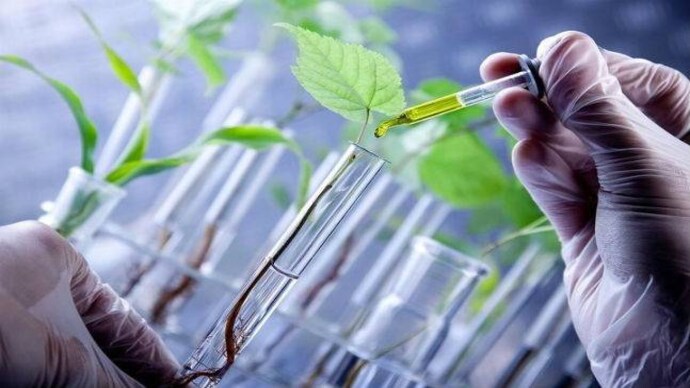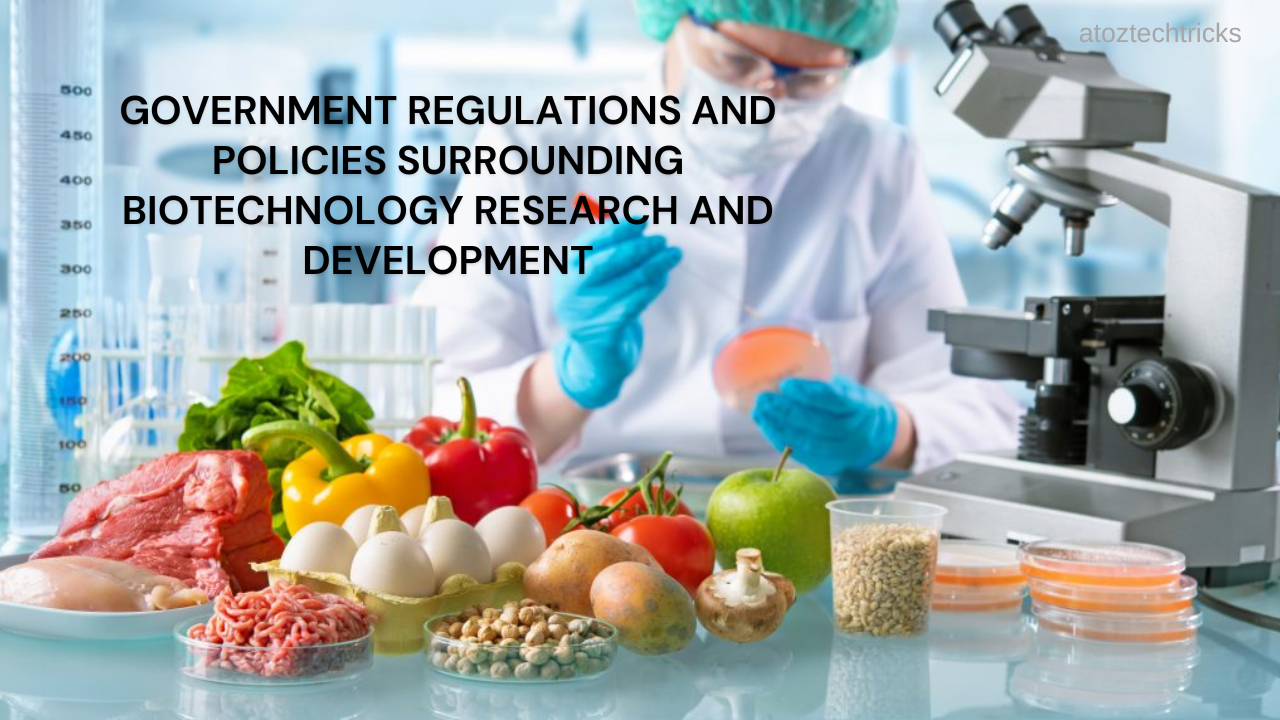Government Regulations and Policies Surrounding Biotechnology Research and Development
Biotechnology, the application of biological systems or organisms to develop products or processes for specific use, has transformed various sectors, including agriculture, healthcare, and environmental management. However, its rapid advancement raises ethical, safety, and environmental concerns, prompting governments worldwide to establish stringent regulations and policies. These regulatory frameworks are crucial for ensuring that biotechnology research and development (R&D) is conducted safely, ethically, and sustainably.
This article explores the intricate landscape of government regulations and policies surrounding biotechnology R&D, examining key regions, ethical considerations, and the future outlook of regulatory frameworks.
1. Overview of Biotechnology R&D
Biotechnology encompasses a wide range of disciplines, including genetic engineering, molecular biology, and synthetic biology. These fields have led to groundbreaking innovations such as genetically modified organisms (GMOs), CRISPR gene editing, and biopharmaceuticals. While these advancements hold immense potential, they also present challenges that necessitate government oversight.
1.1 The Importance of Biotechnology
Biotechnology has revolutionized medicine by enabling the development of targeted therapies, personalized medicine, and advanced diagnostic tools. In agriculture, it has contributed to the creation of pest-resistant crops and enhanced food security. Environmental biotechnology offers solutions for pollution control and sustainable resource management.
However, the power of biotechnology also comes with risks. The potential for unintended consequences, ethical dilemmas, and environmental impacts requires a robust regulatory framework to mitigate these risks while fostering innovation.

2. Key Government Regulations and Policies
Governments around the world have developed regulations and policies to oversee biotechnology R&D. These regulations vary by country and are often influenced by factors such as public opinion, ethical considerations, and the level of scientific advancement.
2.1 The United States
In the United States, biotechnology is regulated by a combination of federal agencies under the Coordinated Framework for the Regulation of Biotechnology. This framework involves the U.S. Department of Agriculture (USDA), the Environmental Protection Agency (EPA), and the Food and Drug Administration (FDA).
2.1.1 U.S. Department of Agriculture (USDA)
The USDA is responsible for overseeing the use of biotechnology in agriculture. The Animal and Plant Health Inspection Service (APHIS) within the USDA regulates genetically engineered (GE) organisms, ensuring they do not pose a risk to plant health. The USDA also plays a role in the deregulation process, allowing GE organisms to be commercialized if they meet safety standards.
2.1.2 Environmental Protection Agency (EPA)
The EPA regulates biotechnology products that may have environmental impacts, such as genetically modified crops designed to resist pests. The EPA’s role includes assessing the environmental safety of biotechnology products and ensuring they do not harm non-target organisms or ecosystems.
2.1.3 Food and Drug Administration (FDA)
The FDA oversees the safety of biotechnology products intended for human and animal consumption, including genetically engineered foods and biopharmaceuticals. The FDA’s regulatory framework ensures that these products are safe, effective, and properly labelled.
2.2 The European Union
The European Union (EU) has one of the most comprehensive and stringent regulatory frameworks for biotechnology. The EU’s approach is based on the precautionary principle, which emphasizes caution and thorough risk assessment before allowing biotechnology products to enter the market.
2.2.1 European Food Safety Authority (EFSA)
The EFSA plays a central role in the EU’s biotechnology regulation. It conducts scientific risk assessments of genetically modified organisms (GMOs) and provides advice on food safety. The EFSA’s assessments consider the potential risks to human health, animal health, and the environment.
2.2.2 GMO Legislation
The EU has specific legislation governing the approval, cultivation, and labelling of GMOs. Directive 2001/18/EC and Regulation (EC) No 1829/2003 are key pieces of legislation that establish the regulatory framework for GMOs in the EU. These regulations require thorough risk assessments, public consultation, and labelling of GMO products.
2.2.3 Ethical Considerations
Ethical considerations play a significant role in the EU’s biotechnology regulations. The EU emphasizes the importance of public consultation and the ethical implications of biotechnology, particularly in areas such as human cloning and genetic modification.
2.3 japan
Japan’s regulatory framework for biotechnology is shaped by its commitment to safety and public health. The country has established laws and guidelines to regulate the development, commercialization, and use of biotechnology products.
2.3.1 Cartagena Protocol on Biosafety
Japan is a signatory to the Cartagena Protocol on Biosafety, an international treaty that governs the transboundary movement of living-modified organisms (LMOs). The protocol emphasizes the importance of risk assessment and the precautionary approach in biotechnology.
2.3.2 Ministry of Health, Labour and Welfare (MHLW)
The MHLW is responsible for regulating biotechnology products related to food, pharmaceuticals, and cosmetics. The ministry ensures that these products meet safety standards and do not pose risks to human health.
2.3.3 Ministry of Agriculture, Forestry and Fisheries (MAFF)
The MAFF oversees the use of biotechnology in agriculture, including the regulation of genetically modified crops. The ministry’s role includes risk assessment, monitoring, and ensuring compliance with safety standards.
2.4 China
China has emerged as a global leader in biotechnology, with significant investments in research and development. The country’s regulatory framework is designed to support innovation while ensuring safety and ethical considerations.
2.4.1 Biosafety Law
China’s Biosafety Law, implemented in 2021, provides a comprehensive legal framework for biotechnology. The law covers areas such as GMOs, gene editing, and synthetic biology. It establishes requirements for risk assessment, biosafety management, and public consultation.
2.4.2 Ministry of Agriculture and Rural Affairs (MARA)
The MARA is responsible for regulating biotechnology in agriculture, including the approval and monitoring of genetically modified crops. The ministry ensures that biotechnology products meet safety standards and do not pose risks to the environment or public health.
2.4.3 Ethical Considerations
China’s regulatory framework also addresses ethical considerations in biotechnology. The country has established guidelines for research involving human embryos and gene editing, emphasizing the need for ethical oversight and public consultation.
3. Ethical Considerations in Biotechnology Regulation
Ethical considerations are central to the regulation of biotechnology. Governments must balance the potential benefits of biotechnology with the ethical implications of its use. Key ethical issues include human cloning, genetic modification, and the use of animals in research.
3.1 Human Cloning and Genetic Modification
Human cloning and genetic modification raise significant ethical concerns. Many countries have banned human cloning due to its potential to create ethical dilemmas and societal implications. Genetic modification, particularly in humans, also raises concerns about the potential for “designer babies” and the long-term effects on the human gene pool.
3.2 Animal Welfare
The use of animals in biotechnology research raises ethical questions about animal welfare. Governments have established regulations to ensure that animals used in research are treated humanely and that their use is justified by the potential benefits of the research.
3.3 Environmental Ethics
Biotechnology has the potential to impact the environment in significant ways. The release of genetically modified organisms into the environment, for example, raises concerns about biodiversity and the potential for unintended consequences. Governments must consider these ethical issues when regulating biotechnology.

4. Challenges in Regulating Biotechnology
Regulating biotechnology presents several challenges, including the rapid pace of technological advancement, the need for international cooperation, and the balance between innovation and safety.
4.1 Rapid Technological Advancement
Biotechnology is evolving at a rapid pace, making it challenging for regulators to keep up with the latest developments. New technologies such as CRISPR gene editing and synthetic biology require updated regulatory frameworks that can address their unique risks and benefits.
4.2 International Cooperation
Biotechnology is a global industry, and the movement of biotechnology products across borders necessitates international cooperation. Treaties such as the Cartagena Protocol on Biosafety play a crucial role in harmonizing regulations and ensuring that biotechnology products are safely managed on a global scale.
4.3 Balancing Innovation and Safety
Governments must strike a balance between promoting innovation and ensuring safety. Overly restrictive regulations can stifle innovation and hinder the development of beneficial technologies. However, lax regulations can lead to safety and ethical concerns. Achieving this balance is a key challenge for regulators.
Biotechnology and Agriculture: Transforming the Future of Food Production
5. Future Outlook of Biotechnology Regulation
As biotechnology continues to advance, the regulatory landscape will need to evolve to address new challenges and opportunities. The future of biotechnology regulation will likely involve greater emphasis on ethical considerations, international cooperation, and the development of adaptive regulatory frameworks.
5.1 Adaptive Regulatory Frameworks
The rapid pace of technological advancement in biotechnology necessitates adaptive regulatory frameworks that can respond to new developments. Governments may need to adopt more flexible approaches to regulation, allowing for the safe and ethical use of emerging technologies.
5.2 Ethical Oversight
Ethical considerations will continue to play a central role in biotechnology regulation. Governments will need to ensure that ethical oversight keeps pace with technological advancements, particularly in areas such as human genetic modification and synthetic biology.
5.3 International Harmonization
As biotechnology becomes increasingly globalized, international harmonization of regulations will be essential. Governments will need to work together to develop consistent standards for the regulation of biotechnology products, ensuring that they are safe, ethical, and environmentally sustainable.
5.4 Public Engagement
Public engagement will be crucial for the future of biotechnology regulation. Governments will need to involve the public in decision-making processes, ensuring that regulatory frameworks reflect societal values and concerns. Public consultation can help build trust in biotechnology and ensure that its benefits are realized while minimizing risks.
The Ethics of Genetic Engineering and Gene Editing: Navigating the Moral Frontier
6. Case Studies in Biotechnology Regulation
Examining specific case studies can provide insight into how different countries approach the regulation of biotechnology and the challenges they face.
6.1 The CRISPR Baby Scandal in China
In 2018, a Chinese scientist announced the birth of the world’s first genetically edited babies using CRISPR technology. The news sparked global outrage and raised ethical concerns about the use of gene editing in humans. The Chinese government responded by tightening regulations on gene editing and emphasizing the need for ethical oversight in biotechnology research.
6.2 The GMOs Debate in the European Union
The European Union has faced ongoing debates over the regulation of genetically modified organisms (GMOs). While some EU member states support the use of GMOs in agriculture, others have imposed bans or restrictions due to environmental and ethical concerns. The EU’s precautionary approach to GMO regulation reflects the challenges of balancing innovation with safety and public opinion.
6.3 Biopharmaceutical Regulation in the United States
The United States has seen significant advancements in biopharmaceuticals, including the development of personalized medicine and gene therapies. The FDA has played a crucial role in regulating these products, ensuring that they are safe and effective. However, the rapid pace of innovation in biopharmaceuticals has also presented challenges for regulators, requiring continuous updates to regulatory frameworks.

Government regulations and policies surrounding biotechnology research and development are essential for ensuring the safe, ethical, and sustainable use of biotechnology. As biotechnology continues to advance, regulators must adapt to new challenges and opportunities, balancing innovation with safety and ethical considerations. The future of biotechnology regulation will likely involve greater emphasis on ethical oversight, international cooperation, and public engagement, ensuring that the benefits of biotechnology are realized while minimizing risks.




Post Comment